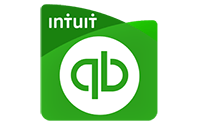One powerful tool at your disposal for securing your financial future while enjoying tax benefits is leveraging retirement plans. In this comprehensive guide, we’ll explore how retirement plans like Simplified Employee Pension (SEP) IRAs and Solo 401(k)s can be game changers for both business owners and employees.
The Power of Retirement Planning
1. Securing Your Financial Future
Retirement plans are not just for large corporations. Small and medium-sized businesses can also take advantage of them to secure their financial futures. By starting early and contributing consistently, you can build a substantial nest egg for retirement.
2. Tax Advantages for Businesses
One of the standout features of retirement plans is the potential for significant tax deductions. Contributions made to retirement plans are typically tax-deductible for businesses, reducing your taxable income and, consequently, your tax liability.
Understanding SEP IRAs
1. Simplicity and Flexibility
Simplified Employee Pension (SEP) IRAs are popular among small business owners due to their simplicity and flexibility. They allow you to make tax-deductible contributions on behalf of yourself and your employees, regardless of the size of your business.
2. Contribution Limits
SEP IRAs offer generous contribution limits, allowing you to contribute up to 25% of each eligible employee’s compensation, up to a certain limit. This can result in substantial retirement savings.
3. Immediate Tax Deductions
Contributions to a SEP IRA are tax-deductible for your business in the year they are made, offering immediate tax benefits that can free up cash flow for other business needs.
Unlocking the Potential of Solo 401(k)s
1. Ideal for Self-Employed Individuals
Solo 401(k)s are tailored for self-employed individuals and small business owners with no employees (except a spouse). They provide a unique opportunity to maximize retirement savings.
2. Dual Contributions as Employer and Employee
One of the standout features of Solo 401(k)s is the ability to contribute both as an employer and an employee. This means you can make generous contributions, often more than you could with other retirement plans.
3. Roth Options for Tax Diversity
Many Solo 401(k) plans also offer Roth options, allowing you to make after-tax contributions. This can provide tax diversity in your retirement portfolio, potentially reducing future tax burdens.
Choosing the Right Plan for Your Business
1. Consultation with a CPA
The choice between a SEP IRA and a Solo 401(k) depends on your specific business structure and goals. Consult with a CPA who specializes in small and medium-sized businesses to determine which plan aligns best with your needs.
2. Contribution Timing
Consider your cash flow and the timing of your contributions. Both SEP IRAs and Solo 401(k)s offer flexibility, so plan contributions in a way that maximizes your tax benefits and retirement savings.
By leveraging retirement plans like SEP IRAs and Solo 401(k)s, you can secure your financial future while enjoying valuable tax deductions. Retirement planning is not a one-size-fits-all endeavor.
For personalized guidance and to explore the best retirement plan options for your business, don’t hesitate to reach out.


